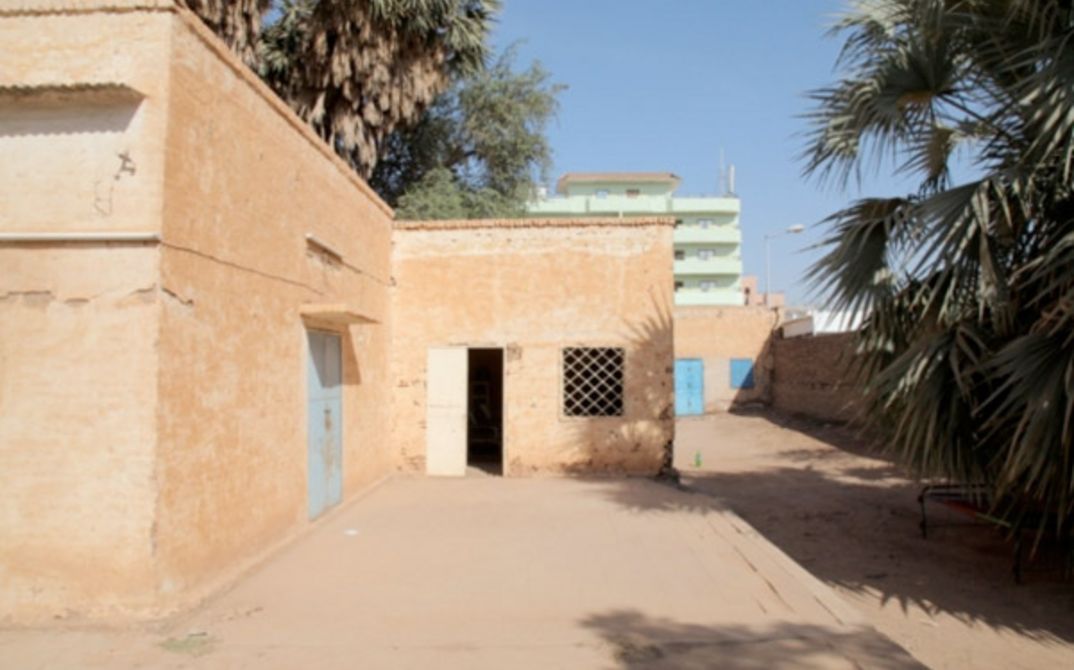
The Film Holdings of Gadalla Gubara
For the second time now, Arsenal – Institute for Film and Video Art has been able to use funding from the German Foreign Office to realize a project aimed at preserving film holdings: the body of film work of Sudanese filmmaker Gadalla Gubara (1921–2008). Gadalla Gubara worked for over 50 years as a director of both features and documentaries. Until his death, he ran the first private film studio in Khartoum: Studio Gad. In light of both a lack of technical and financial resources and precarious storage conditions, advanced levels of material decay were threatening the very existence of this cinematic legacy. With funding from the German Foreign Office’s Cultural Heritage Program, the films were able to be digitized in Berlin in Autumn 2013. The archival holdings of the National Film Institute in Guinea-Bissau (INCA – Instituto Nacional de Cinema e Audiovisual) have already been digitized in 2012 as part of the “Animated Archive” project.
Gadalla Gubara is one of the less well-known pioneers of African cinema. He ran the first film studio in Sudan and was co-founder of both the Pan-African Federation of Filmmakers FEPACI and the FESPACO festival (Ouagadougou, Burkina Faso). His oeuvre spans feature films, reports, educational documentaries, advertising films and home movies. He documented Sudan’s political and social developments for over 50 years, from independence in 1956 via the phase of socialist government and its policy of modernization all the way through to the proclamation of the Islamic Republic in 1983, equally capturing the obvious deterioration in conditions for filmmaking that went hand in hand with this development.
Sudan was home to numerous cinemas in the first years after independence, as well as state film funding, training opportunities for filmmakers and a national film industry, however small. The economic and political instability that was to follow and an increasingly hostile political stance towards culture brought about both the disappearance of this cinema landscape and significant restrictions for film production. From the 1980s onwards, Gubara was thus completely dependent on foreign and private funding and subject to political repression.
Gadalla Gubara – Training and Film Work
During the Second World War, Gadalla Gubara received training as a cameraman at the British Colonial Film Unit, an institution which existed in almost all of the British colonies. He shot propaganda films, newsreels, as well as the educational documentaries widespread in Africa at the time that were intended to play a role in the modernization of the country.
Following Sudan’s independence in 1956, he headed the Sudanese Film Unit, a sort of state film authority whose task was to create television and cinema for the nation. Gubara regarded this as an important part of the country’s process of self-discovery and saw the medium of film as one way of reaching the largely illiterate population.
The following years were marked by an atmosphere of political and cultural awakening. During this period, Gubara documented everything with his camera: government meetings with General Gamel Abdel Nasser and Haile Selassi, the nightlife of Khartoum, the construction of railway lines, factories and dams. His great goal was to shoot features however. At the end of the 1950s, he received a grant to go to California and study directing at the University of California in Los Angeles. Afterwards, he worked as an assistant at the Masr film studio in Cairo.
In 1969, he founded the Pan-African film festival FESPACO (Festival panafricain du cinéma et de la télévision) in Ouagadougou together with Souleymane Cissé, Med Hondo, and Ousmane Sembène. The foundation of the Federation of African Filmmakers FEPACI (Fédération panafricaine de cinéastes) followed one year later. As the only Sudanese filmmaker within the federation, he remained an outsider, a position equally caused by his criticism of the financial support received by FEPACI from France, which he regarded as colonialist.